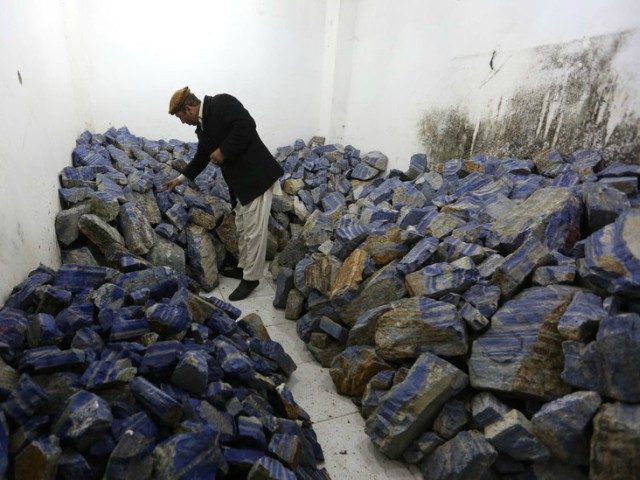The Afghan government, funded in part by the American taxpayer, has refused to award contracts to exploit the country’s lucrative mining industry to Pentagon-supported international companies, including U.S.-based contractors, according to the U.S. Special Inspector General for Afghanistan Reconstruction (SIGAR), a watchdog agency.
Meanwhile, the Kabul government has reached a 30-year, $3 billion deal with a state-owned Chinese company to mine Afghanistan’s copper deposits, a component of the war-ravaged countries mineral resources valued by the U.S. government at about $1 trillion.
The United States has spent at least $121 billion on Afghan reconstruction efforts alone, funding the country’s government, among other sectors of the country.
Nevertheless, Afghanistan has refused to award mining contracts to international companies supported by the Pentagon’s Task Force for Business and Stability Operations (TFBSO), including some contractors based in the United States.
SIGAR found:
TFBSO obligated $51 million to facilitate the award of between 8 and 12 large-scale mining contracts to international companies. However, TFBSO officials and contractors said they overestimated the speed at which the [Afghan] Ministry of Mines and Petroleum could work and underestimated the resistance they would face from other ministries.
As a result, after repeated delays, no contracts were signed but four contracts were brought to the point that they only needed the Afghan government’s signature. However, the government refused to sign any of these contracts because of political concerns surrounding mining contracts.
Overall, the watchdog agency reported that the Pentagon’s $675 million TBSO effort has yielded “mixed results, waste, and unsustained projects.”
“In 2011, Congress authorized TFBSO to spend DOD [Department of Defense] funds to reduce violence, enhance stability, and support economic normalcy in Afghanistan through strategic business and economic activities,” explained SIGAR.
Referring to the mining contracts, SIGAR’s chief John Sopko further explained:
It is worth noting that the Ministry of Mines and Petroleum has not announced any additional tenders for mining contracts, raising questions about whether the expensive technical training TFBSO (and later, the U.S. Agency for International Development) provided to the ministry has been put to effective use.
We would caution DOD and other U.S. government agencies against thinking that success in Afghanistan’s mining sector is only a few contract signatures away, as the Afghan government will likely need continued assistance to effectively oversee, regulate, and receive the royalty payments it is entitled to for these contracts.
While the United States continues to invest blood and treasure in Afghanistan, it is neighboring China that is set to tap into what is believed to be one of the richest troves of minerals in the world located in the war-devastated nation.
Most mineral deposits are believed to be in the Taliban-stronghold of Helmand, one of the deadliest Afghan provinces for U.S. troops.
China, which shares a border with Afghanistan, has allegedly made a pact with the Taliban that allows Beijing to mine Afghanistan without worrying about security.
China already dominates the rare earth mineral sector, prompting “concern in Washington that Beijing has a stranglehold on raw materials vital to modern defense technology and prompting an interest in finding alternative sources,” noted Reuters.
SIGAR’s findings come after Afghan President Ashraf Ghani expressed support for President Donald Trump’s administration interest in harnessing Afghanistan’s mineral resources.
“After 16 years in Afghanistan, the U.S. is looking for ways to offset the billions of dollars spent every year in propping up the government in Kabul and mining is increasingly being seen as a way to do that,” it added.
Since the war in Afghanistan started in October 2001, the United States has spent at least $877 billion, including the funds devoted to nation-building efforts.
U.S. military fatalities in Afghanistan have reached 2,263 and injuries stand at 20,289.

COMMENTS
Please let us know if you're having issues with commenting.